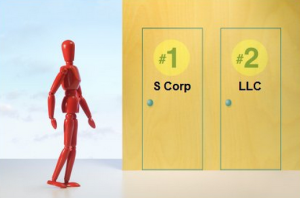Posts
California Appellate Court Rules Against FTB in Swart Case
/0 Comments/in News /by mrarracheSwart case could be a small but notable victory for out-of-state ownership of a California LLC.
Currently, California’s franchise tax is imposed on the net income of every corporation “doing business within the limits of this state.” (§ 23151, subd. (a).) For tax years prior to January 1, 2011, section 23101 defined “doing business” as “actively engaging in any transaction for the purpose of financial or pecuniary gain or profit.” 2 (Former § 23101, now § 23101, subd. (a).) The term “actively” is the opposite of “passively” or “inactively” and means “active transaction for pecuniary gain or profit.” (Golden State Theatre & Realty Corp. v. Johnson (1943) 21 Cal.2d 493, 496 (Golden State Theatre); Hise v. McColgan (1944) 24 Cal.2d 147, 151.)
In this case, the $800 minimum franchise tax was imposed upon Swart several years after Swart made its investment and became a member of Cypress LLC. Swart argued that it was not doing business in California and that it passively held onto its investment in the tax year the franchise tax was imposed.
The Franchise Tax Board (FTB) demanded that Swart file a California corporate franchise tax return for the tax year ending June 30, 2010, and pay the $800 minimum franchise tax due on that return. Swart paid the tax, which amounted to $1,106 with penalties and interest, but contested it and requested a refund.
Swart claimed it was not subject to the franchise tax because it held no other investments in California, it did not otherwise do business in California, and it was only a passive member in Cypress LLC. Swart further claimed imposition of the franchise tax violated the due process clause and commerce clause of the United States Constitution. The FTB denied Swart’s request for refund.
Swart timely filed a complaint seeking a tax refund and declaratory relief. After briefing and argument on the parties’ cross-motions for summary judgment, the trial court entered an order granting Swart’s motion for summary judgment and denying the FTB’s motion for summary judgment. Swart was awarded a refund in the amount of $1,106.71.
Read court document here http://www.courts.ca.gov/opinions/documents/F070922.PDF
Jerry Brown Abandons Middle Class Californians, Vetoes AB 99 COD Conformity Bill
/0 Comments/in News /by mrarracheLLC vs S Corporation – What’s the difference?
/0 Comments/in News /by mrarrache
Most every business start-up has come across the question “LLC or S corporation?”.
While this is a very common question, the response is often different depending on who you are talking to.
It should be noted that an LLC might work for some while an S corporation could be better for others – there is no “one size fits all” approach to entity selection.
In short, here are a few pro’s and con’s for the LLC and S Corporation entity structure:
LLC –
- PRO – Divide profit as members see fit
- CON – Passthrough income subject to self-employment tax if member has personal liability for debts of LLC or actively participates in trade or business of LLC
S Corporation –
- PRO – Passthrough income is not subject to self-employment tax. Only employee-shareholder “reasonable compensation” subject to payroll taxes.
- CON – Only issue single type of stock and must distribute profit based on percentage of stocked owned
Of course there are many more pro’s and con’s for each entity selection – feel free to call us with any questions and will be happy to discuss more (800) 425-0570.
For more related information visit the following links:
http://tiny.cc/xjz22x IRS: Partners’ Share Of LLC Income Is Subject to Self-Employment Tax
http://tiny.cc/smz22x 5 Common Objections to Forming a Corporation or an LLC
CONTACT US
4590 MacArthur Blvd
5th Floor
Newport Beach, CA 92660
(800) 425-0570 Info@mrarrachecpa.com
About
Mr. Smart Tax, Inc. Provides Tax, Accounting and Resolution for Business, Individual, Trust and Nonprofit clients.


